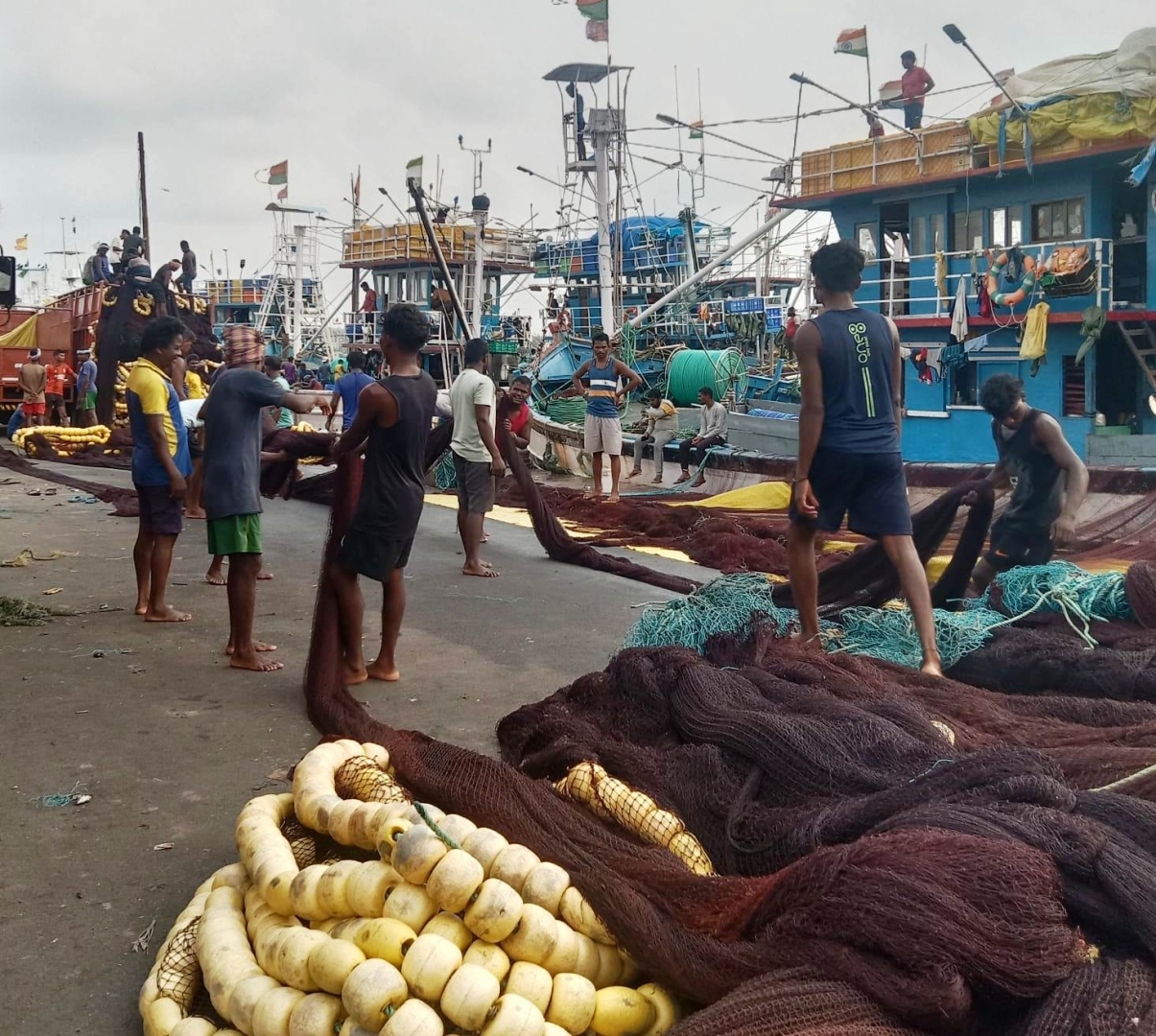Cholera is limited to Cutbona and neighbouring areas, cases have been rising and will continue until the population is screened and treated

The five cholera fatalities reported among labourers of Cutbona fishing jetty along the Sal River in Velim village of Salcete is alarming and has rightly grabbed the attention of the state administrators at the highest level. The last report from the state epidemiologist is that 172 individuals from Cutbona and adjacent Mobor have tested positive for cholera, besides prevalence there of dengue and other vector-borne diseases.
An intensive surveillance drive to screen the local population may reveal a scary picture suggestive of a public health emergency linked with deteriorating environmental conditions here, conducive for escalating infections in days to come, unless various stakeholders handhold and act on war footing. This cannot just be restricted to knee jerk medical interventions but will have to include long-term socioeconomic corrections and environmental remediations, looking at the geographic transition of labour, their ‘carrier status’, investigation of their living spaces for deciphering the transmission dynamics, vulnerability assessment and prophylaxis programme, regular health care access are integral steps to redeem the area of this crisis.
Recently, I’ve noticed distinct shades of urgency, aggression and preemption in our CM’s style of functioning. This is in stark contrast with his earlier accommodative version. Now he focuses on the bull’s eye and shoots the arrow. He may hit the target or not, the ‘twang’ of the ‘bowstring’ is loud enough to make everyone around take notice!
The Chief Minister visited the Cutbona jetty for a firsthand assessment of the situation, accompanied by his environment minister, and local MLA. Media coverage suggests that the CM was aghast and enraged at the apathy of the fishing boat owners towards their hired workforce, many of whom are migrants from states as far as Odisha, Andhra Pradesh, Bihar, Jharkhand, West Bengal, Tamil Nadu and Karnataka.
The dismal state of living conditions of the labourers who are ‘traded’ by the labour contractors for profiteering is appalling. The ‘chief executive of the state’ was clearly unhappy over the lack of sanitary toilets and that these workers were compelled to use the adjacent fields and seafront to defecate. His sarcastic question at the defunct ‘pay to use’ censor toilets speaks volumes about disconnect between policy on paper and implementation on ground.
Thirdly the lack of mandatory health checks prior to deployment and access to routine health care seemed missing. The encroachment along the jetty access and the abandoned fishing vessels and paraphernalia also caught his attention, and he ordered that these be removed. The state has already announced ex-gratia compensation of five lakhs to the family of each deceased, besides the CM asking the boat owners also to demonstrate sensitivity towards lost lives
Surely in the rains, unused fishing crafts and the water-holding discards are breeding grounds for vectors, a critical element in spread of vector-borne diseases like dengue.
Instances of as many as ten occupants in an immeasurably small claustrophobic space with no toilets does not auger well for a state that boasts of ‘open defecation free’ tag. Defecating out in open, lack of clean water for drinking and sanitation are compounding factors in contracting cholera, an acute, diarrhoeal illness caused by infection of the intestine with the toxigenic bacterium Vibrio cholerae. The infection though mild or asymptomatic, can be severe. This toxin-mediated disease can rapidly cause severe dehydration and death if left untreated. It spreads through ingestion of water or food contaminated with infected person’s faeces because of poor hygiene.
The manpower employed in Goa’s fishing sector is not a ‘use and throw’ commodity that can be exploited for seasonal profits. They are a human resource and deserve a humane handling by their recruiters. I spoke to some top executive functionaries representing the government departments to understand the issue objectively. The fisheries department submits that it is not in their purview to oversee labour welfare vis a vis the fishing boat workforce and points fingers at the Labour department. Functionaries of Labour welfare department though certainly sensitive to the woes of these ‘floating workforce’, argue that they can only act in event of death, disability arising during and out of this ephemeral employment in mechanized fishing sector, under Employees Compensation Act, 1923. Interestingly this legal instrument has a specific mention of ‘seaman or other member of the crew of a ship’ as beneficiary.
The state can assess if these fishing boat labourers can be brought under ambit of ‘The Inter-state Migrant Workmen (Regulation of Employment and Conditions of Service) Act, 1979’, than many of these issues can been resolved. The said act unambiguously defines and lays down the entitlements of such interstate migrant workmen with respect to their registration with a competent authority, wage regulation, living conditions and health care.
In absence of a single statutory entity for enforcement and implementation of the fishing boat labour welfare measures, the favourite bureaucratic game of ‘passing the parcel’ continues. Ideally the state should identify the stakeholder departments with overlapping functions and then constitute an independent agency for optimizing inter-departmental, cross-sectoral, and centre-state coordination for effective functioning and fast results on ground.
Cholera is currently limited to Cutbona and neighbouring areas, cases have been rising and will continue until the population is screened and treated. The bacteria spread through faecal-oral route and untreated human excreta is the major cause. Defunct and sub-optimal sewage treatment only complement the disease. The situation in Cutbona is still under control, but if cases explode further the state health authorities may have to exercise the option of vaccinating the population here. It is a strange coincidence that just 3 weeks ago, Bharat Biotech has launched an oral cholera vaccine, HILLCHOL, developed under license from Hilleman Laboratories, to address the rising cases of the disease in India.